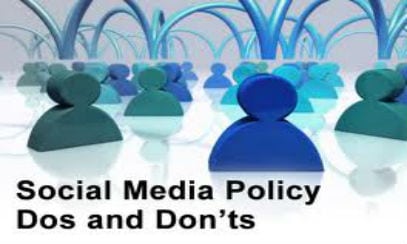
 When National Security Council Director of Nonproliferation Jofi Joseph was fired last week by the White House for sending insulting tweets for more than two years under an anonymous personal account, it raised anew the importance of setting clear standards for the use of social media by employees, whether on behalf of their companies or through personal accounts.
When National Security Council Director of Nonproliferation Jofi Joseph was fired last week by the White House for sending insulting tweets for more than two years under an anonymous personal account, it raised anew the importance of setting clear standards for the use of social media by employees, whether on behalf of their companies or through personal accounts.
Social media policies need to evolve with the marketplace, and in-house communications teams need to be clear about how to manage employees’ online behavior, even comments from personal accounts. One misguided user can impact the reputation of a whole company. To be sure, there are some fairly detailed social media guidelines out there already.
But, what should you be doing about social media policies? What is appropriate? And what works? In our 2013 Employee Communications Guidebook, authors Martha W. DiStaso, Tina McCorkindale and Julia Tompkins offer an array of great advice and perspective on the topic. Here are some of their suggestions for an effective internal social media policy.
- Employees should identify themselves when talking about the organization. Establishing a transparent relationship internally and externally is a best practice, of course, and not only on social media. Encouraging a system of open communication and trust in social media use lends itself to a positive corporate culture. Engaging in dialogue is a fundamental purpose of social media.
- Companies should write their own policies. Each organization is unique and requires specific attention to detail when establishing social media policies. Do not just try to copy someone else’s policy because it likely will not ring true with your employees. Still, consider using policies from other organizations as a starting point or to get ideas for different types of content. Also, ensure that you construct your employee social media policy to include any specific regulations that are required in your industry.
- Training is important. Social media is important for serving as an outlet for employees to express their feelings and opinions. Problems can arise when employees are not provided ample explanation of the policies or when they feel that their rights are being infringed upon. Employees can be turned into effective brand ambassadors with proper training.
- Focus on the positive. Policies should be written on what should be done, rather than what shouldn’t be done. This will help encourage positive behavior from employees in and out of the office. In fact, policies focused on the negative may actually result in a loss of trust and could impact the overall culture of the organization while making employees vulnerable to misuse.
- Encourage social media use. Employee use of social media is growing every day, and it helps companies connect and engage in dialogue with a variety of stakeholders. By generating two-way conversations and establishing positive relationships with the public, employees can serve as brand ambassadors.
- Collaborate. Create the policy and distribute it for feedback. Collaboration on the policy will help it meet everyone’s needs. Plus, without buy in, a policy will not be enforceable and a futile waste of time.
- Review Periodically. Social media changes frequently. Don’t forget to review your policies to ensure they are still appropriate and relevant.
To order a copy of the 4th edition of the Employee Communications Guidebook, please click here.
Follow Brian W. Kelly: @bwpkelly
